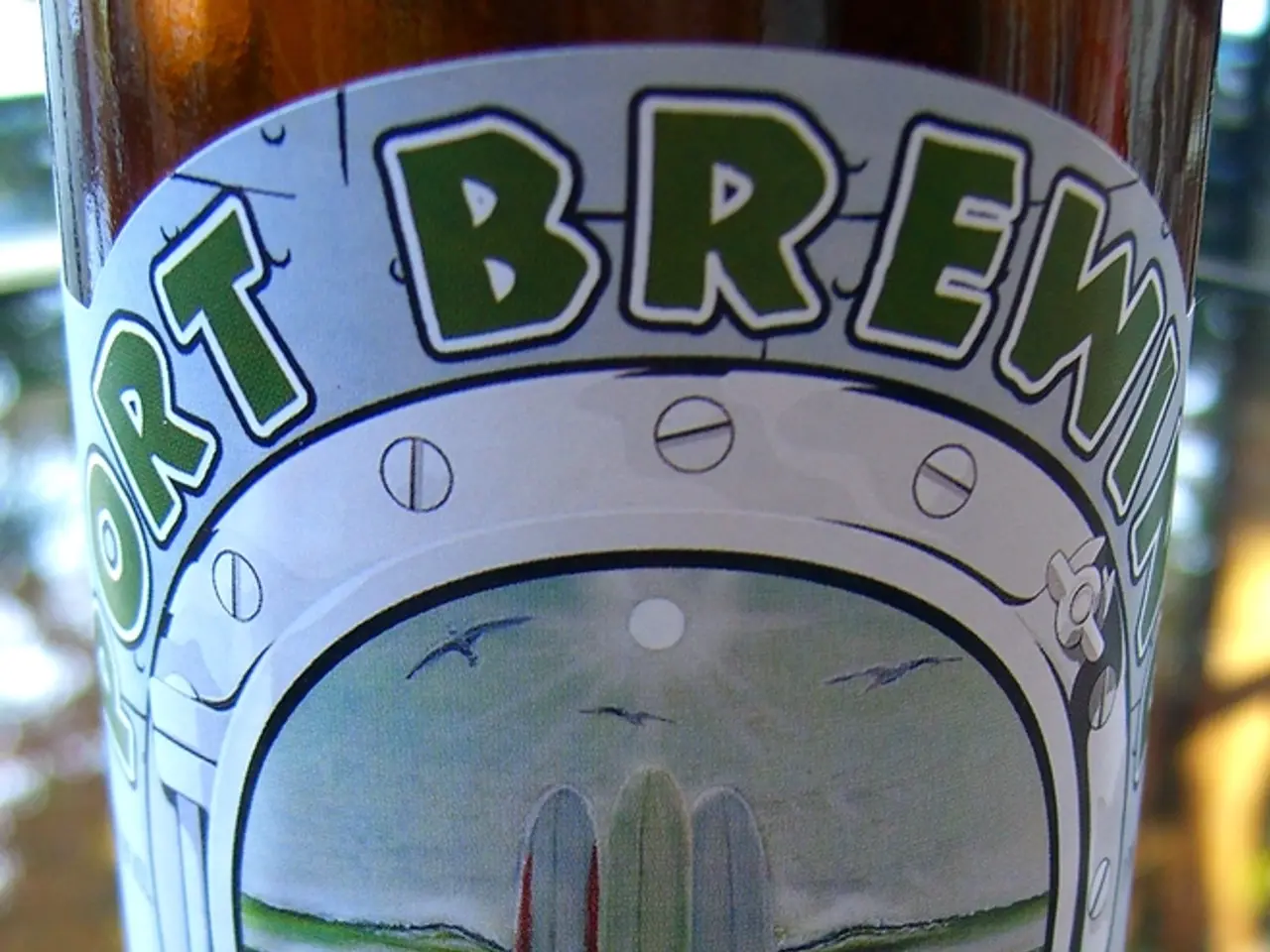Alcohol Content of Kombucha Beverage
Kombucha, a popular fermented tea beverage, is known for its unique taste and numerous health benefits. However, it's also worth understanding the factors that influence the alcohol content in this drink.
One of the key determinants is the sugar content. The amount of sugar initially added to the tea can affect the alcohol content. More sugar available during fermentation can result in a slightly higher alcohol content because the bacteria and yeast convert sugars into ethanol and carbon dioxide. However, traditional kombucha typically contains less than 0.5% alcohol[5].
Another factor is the fermentation temperature. Optimal fermentation temperatures range from 68°F to 85°F (20°C to 30°C), with warmer temperatures generally promoting faster fermentation and potentially slightly higher alcohol levels due to increased yeast activity[2]. Yet, the alcohol content remains low in traditional kombucha due to the nature of the fermentation process, which is not optimized for ethanol production like in beer or wine.
Fermentation time also plays a role. Longer fermentation times allow for more sugar to be converted, potentially resulting in a slightly higher alcohol content. However, traditional kombucha fermentation typically lasts between 7 to 14 days, keeping alcohol levels below 0.5%[5][3].
The surface area in contact with air is not a direct factor in alcohol content. However, it can influence the growth of the SCOBY and the overall health of the fermentation process. A healthy SCOBY will protect the brew from contaminants and maintain its characteristic low pH, which is crucial for preventing unwanted microbial growth[1].
In summary, while these factors can influence the alcohol content of kombucha, the traditional brewing process is designed to keep alcohol levels low, typically below 0.5%. Factors like sugar content, fermentation temperature, and fermentation time are more significant in influencing the overall flavor and health benefits of kombucha rather than raising alcohol content significantly.
It's important to note that commercial kombucha has an alcohol percentage of less than 0.5%, making it a safe and enjoyable beverage for many. For those who wish to reduce the alcohol content further, methods such as limiting the added sugar, extending the fermentation time, and limiting fermentation time in the bottle before placing it in the fridge can be employed.
References: [1] Forsythe, P. (2018). The Nourishing Traditions Book of Baby & Child Care. New Trends Publishing, Inc. [2] Hsu, J. Y. (2015). Food Microbiology: Fundamentals and Frontiers. Academic Press. [3] Lee, S. W. (2013). The Complete Guide to Fermenting Foods. Storey Publishing. [5] National Institutes of Health. (n.d.). Kombucha Tea. National Center for Complementary and Integrative Health. Retrieved from https://www.nccih.nih.gov/health/kombucha-tea
- Maintaining a low sugar content in the kombucha recipe can help prevent a significant increase in its alcohol content, as more sugar provides more materials for the bacteria and yeast to convert into ethanol and carbon dioxide.
- Pursuing a lifestyle focused on health and wellness might involve incorporating kombucha into dietary choices, given its connection to cooking and food and drink, along with its potential fitness benefits, while being mindful that fermentation time can slightly affect its alcohol content.
- Engaging in science and understanding the various factors involved in kombucha fermentation, such as temperature, can provide insights into the food and drink industry, offering opportunities for innovation in health-and-wellness and lifestyle products.




